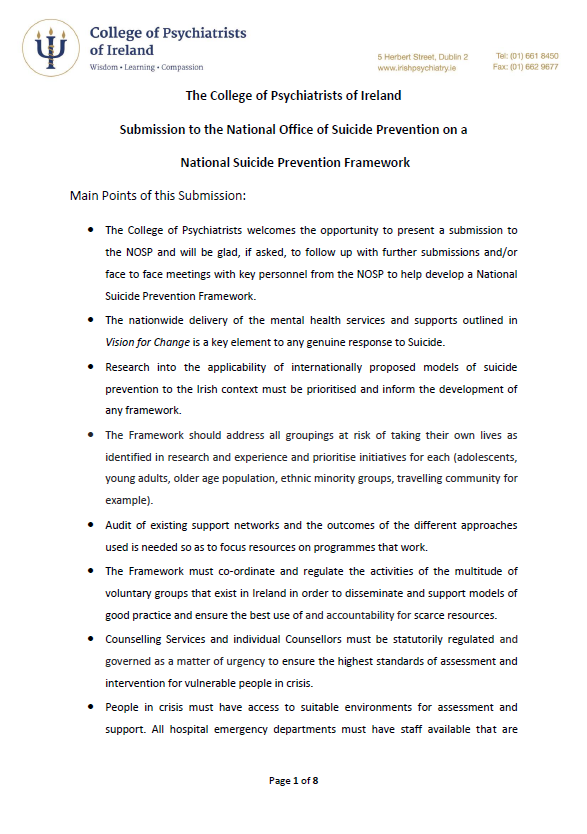Suicide has always occurred, but due to issues such as stigma, judgemental attitudes and religious interdictions, it has been ignored as a problem in Irish society for generations. Over the last few years there has been an increasing effort to openly address this issue with the ultimate aim of reducing its incidences and in alleviating the suffering of those bereaved by suicide and of those contemplating or attempting suicide. We have travelled far, but we still have a long way to go. There have been conferences, documents, initiatives, training and planned implementations. Yet we are still unsure of what works and what does not work in the area of suicide prevention. What might work for one individual may not work for the population as a whole. We believe we can reduce suicide, but belief and good intentions do not always translate into positive results.
What makes suicide so difficult to study and prevent is the complexity and multifaceted nature of its causes. Not only are there mental health factors associated with suicidal behaviour, but there are social, cultural, economic, anthropological and philosophical aspects to this issue. The College with its expertise in mental health as well as mental illness is pleased to share its views with the National Office of Suicide Prevention (NOSP). The College hopes that this submission is an initial step in the relationship between it and the NOSP as regards the development of a framework and it will be available to the NOSP for further deliberations if asked.

